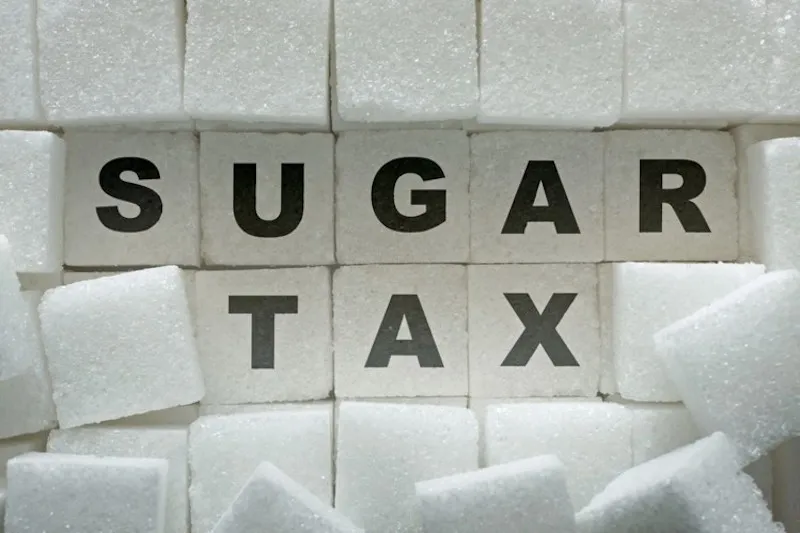The National Action on Sugar Reduction Coalition (NASR) has decried the recent suspension of the Sugar-Sweetened Beverage (SSB) tax and called for a reduction in insulin tariffs.
During at a stakeholders’ meeting in Abuja on Monday, the coalition said that the decision had detrimental effects on public health and the well-being of individuals with diabetes.
The News Agency of Nigeria (NAN), reports that the coalition has been advocating pro-health policies, including the passage of Nigeria’s N10 per litre excise tax in the 2021 Finance Act.
President, Nigeria Cancer Society (NCS)/Co-Chairman, NASR Coalition, Dr Adamu Alhassan Umar, called on the government to restore the SSB tax and reduce the tariff imposed on insulin.
Umar said that it was a requirement to live a quality life because it would improve the health of Nigerians and reduce the prevalence of non-communicable diseases in the country.
He alleged that the SSB tax, which was implemented to discourage the consumption of sugary drinks and reduce the incidence of obesity and related diseases, had been temporarily suspended by the government.
‘“SSB consumption is a modifiable risk factor for non-communicable diseases, including diabetes mellitus, cancers and heart diseases.
“It is therefore pertinent to have proactive measures in place to curtail the harmful effects of these products,” he said.
He noted that sugar was a higher contributor to cancer, therefore the tax was not supposed to be suspended but increased, asking the government to provide more information on the status of the terms of sugar-sweetened beverages.
‘‘The coalition called on the government to tax sugary beverages at a rate that increases sugary drink prices by at least 20 per cent of the retail price that aligns with the global best practices,” he said.
He said that the government also needed to provide subsidies for insulin and remove tariffs imposed on it so that Nigerians would have a better quality of life and afford to buy those drugs.
‘‘We demand that taxes on insulin be removed and revenue from sugary drinks taxes can be used to subsidise insulin treatments for patients,” he said.
He said that pro-health taxes like the SSB tax could lead to a healthier population and requested that there should be more health promotion and awareness on the dangers of SSB consumption and restriction on the marketing of sugary drinks.
He said this would create an environment that encouraged healthy life choices.
‘‘SSB tax is a health tax that discourages the consumption of health-harming sugary beverages, it is an option for preventing non-communicable diseases and providing an additional revenue stream for funding healthcare services,” he said.
Also, Mr Bernard Enyia, National Secretary of the Diabetes Association of Nigeria added that the suspension of the tax was not a piece of good news to persons who were already living with the disease.
‘‘So much damage is going on, we need to inform the government that a lot of people are losing their lives.
“People are coming down with complications each passing day and the mortality rate is rising from this non-communicable disease.
“It’ll be a good thing for the government of the day to reinstate the status quo of the deduction in sugar taxes,” he said.
Member of the coalition/Executive Director of Bundies Care Support Initiative, Ms Funmi Adefila-Osiegbu, said that the coalition was concerned with reducing the burden on the people to be able to access health care.
Adefila-Osiegbu said that one of the ways of reducing the burden on Nigerians was that the SSB tax be restored to help health financing, so that whatever was generated through all the sweetened beverage taxes, should be channelled to health care.
NAN reports that the move has sparked outrage among health experts who believe that the tax plays a crucial role in curbing the rising rates of obesity and its associated health complications.
Obesity and related diseases, such as diabetes, are major public health concerns that require urgent attention, said Dr Sarah Thompson.
She said that suspending the SSB tax would send the wrong message and undermine efforts to combat the health issues.
“It is essential that we prioritise the well-being of our citizens over short-term economic gains,” she said.
Thompson said that diabetes was a chronic condition affecting millions of people worldwide, and insulin was a life-saving medication for those with type one diabetes and some with type two diabetes.
READ ALSO:
- FAAC shares N1.424trn December revenue to FG, states, LGs
- Tinubu Commends Nigerian Governors For Supporting Tax Reform
- Tax Reform Bills: Zacch Adedeji, The Man Of Steel
- Breaking The Cycle: How Nigeria’s Economy Shapes Democracy
- Funke Akindele Reacts To Fan’s Question About Her Sex Life
Access to affordable insulin is a matter of life and death for individuals with diabetes,” Mr John Davis, a diabetes patient and member of the coalition, emphasised.
“High tariffs on insulin make it unaffordable for many, forcing them to ration or forgo their medication.
“This puts their health at risk and can lead to devastating complications.”
He also urged policymakers to prioritise public health over short-term economic considerations.
He urged the government to reconsider those decisions and prioritise the health and well-being of Nigerians like himself.
“By reinstating the SSB tax and reducing insulin tariffs, we can make significant strides in combating obesity and diabetes, ultimately improving the lives of countless Nigerians and reducing the burden on our healthcare system,” he stressed.
(NAN)


